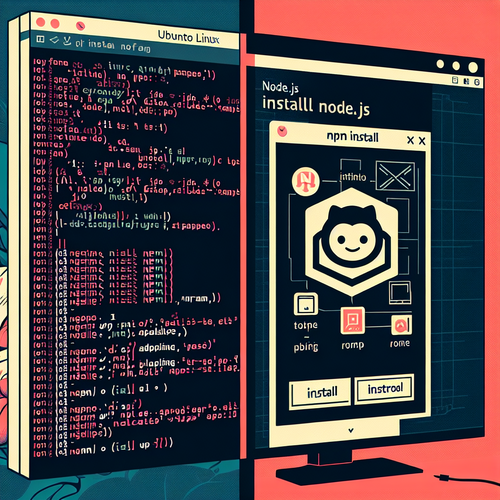
{{ $('Map tags to IDs').item.json.title }}
Installing Node.js and npm on Ubuntu and Windows
Node.js is a JavaScript runtime built on Chrome’s V8 JavaScript engine, widely used for building server-side applications. npm (Node Package Manager) is included with Node.js and helps manage dependencies for your Node.js projects. This tutorial will guide you through installing Node.js and npm on both Ubuntu and Windows operating systems.
Installing Node.js and npm on Ubuntu
1. Update Your System
First, update your package index to ensure you have the latest package lists:
sudo apt update2. Install Node.js and npm
There are several ways to install Node.js and npm on Ubuntu. The easiest way is to use the NodeSource repository:
curl -fsSL https://deb.nodesource.com/setup_14.x | sudo -E bash -
sudo apt install -y nodejsThis command installs Node.js version 14.x along with npm. You can replace 14.x with the desired version.
3. Verify the Installation
Once the installation is complete, check the installed versions of Node.js and npm:
node -v
npm -vYou should see the version numbers displayed in the terminal.
Installing Node.js and npm on Windows
1. Download the Installer
Visit the official Node.js website at nodejs.org and download the Windows installer. Choose the LTS (Long Term Support) version for stability.
2. Run the Installer
Once the installer is downloaded, run it. Follow the prompts in the setup wizard:
- Accept the license agreement.
- Choose the installation path (the default is usually fine).
- Ensure the option to install npm is selected.
- Click Install to begin the installation process.
3. Verify the Installation
After the installation is complete, open Command Prompt or PowerShell and check the Node.js and npm versions:
node -v
npm -vYou should see the installed version numbers displayed.
Conclusion
Now you have successfully installed Node.js and npm on both Ubuntu and Windows systems. You can start building powerful applications using JavaScript on the server side. Make sure to regularly update your Node.js and npm installations to keep up with the latest features and security patches.













